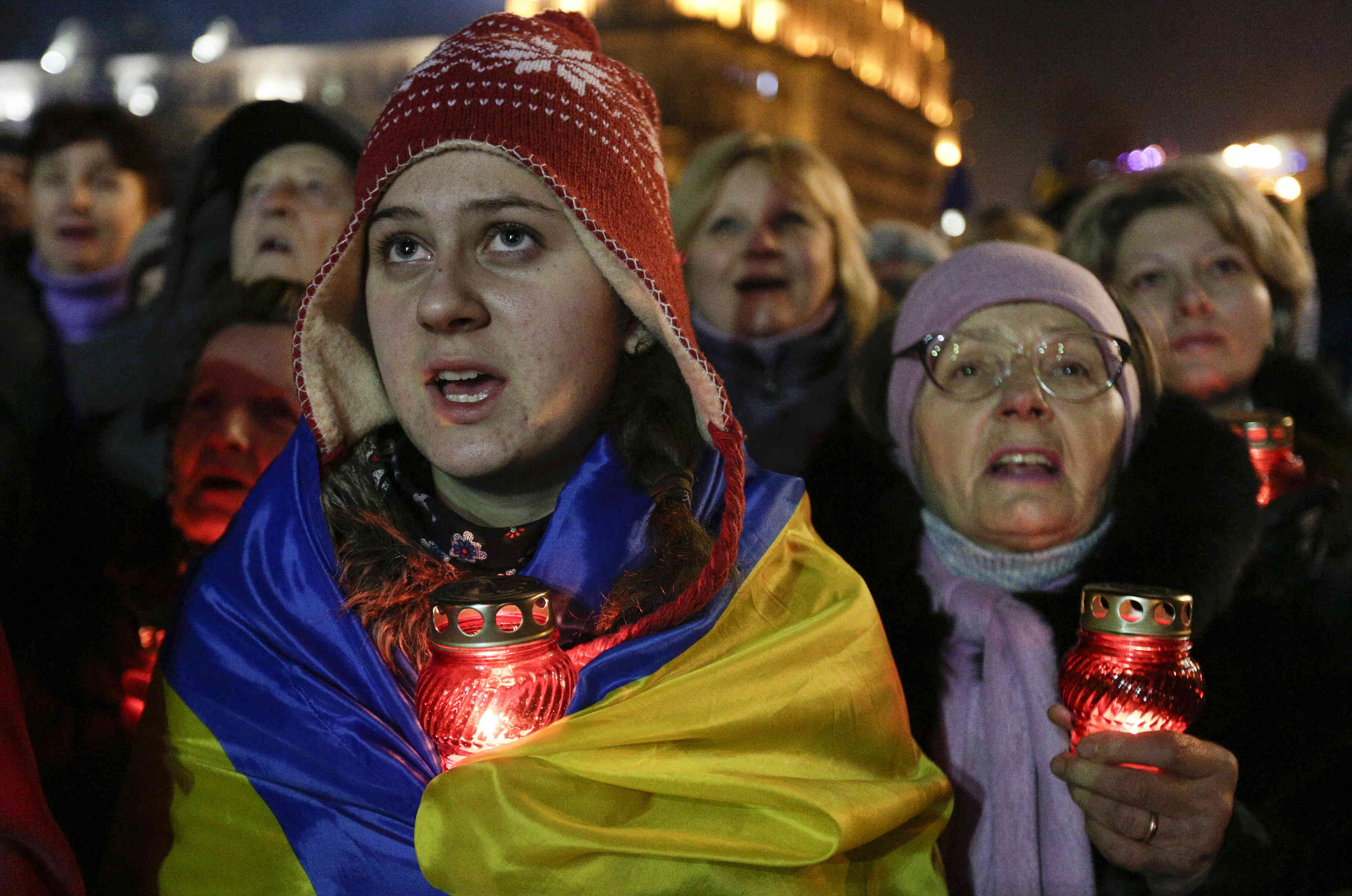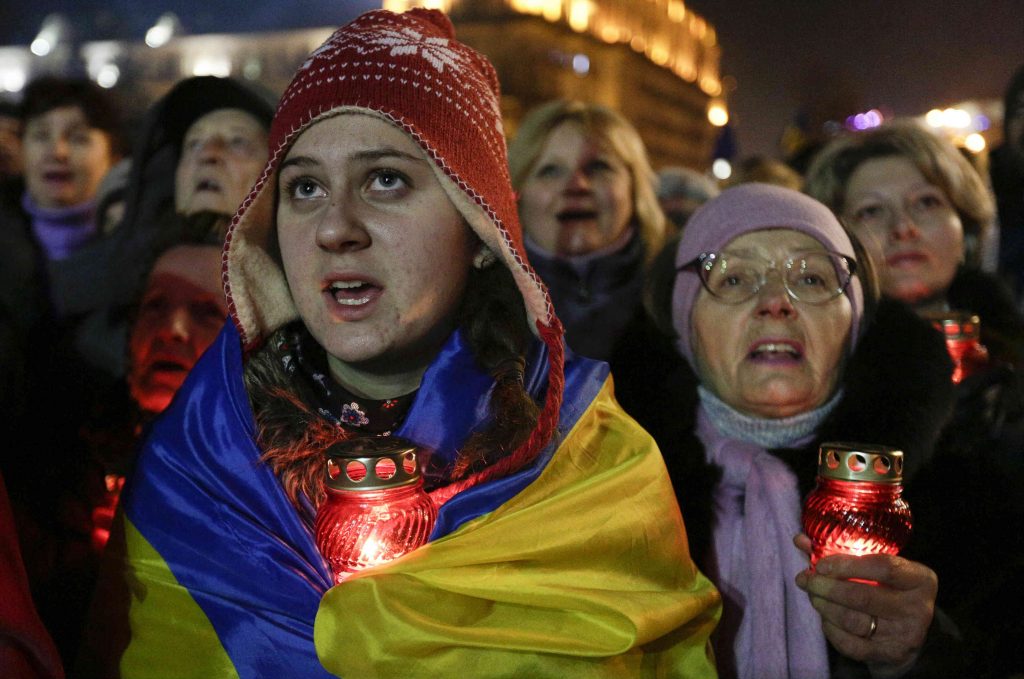 It took a staggering sixteen months and it wasn’t easy. The old guard resisted it every step of the way. Ukraine’s parliament passed civil service reform, one of the highest priorities of the Euromaidan’s young reformers, on December 10. The Reanimation Package of Reforms (RPR), a civic group, described the development as “a real miracle.” Geoffrey Pyatt, US Ambassador to Ukraine, called it an “enormous accomplishment.” If properly implemented, the new law will revolutionize how Ukraine is governed. It contains six parts.
It took a staggering sixteen months and it wasn’t easy. The old guard resisted it every step of the way. Ukraine’s parliament passed civil service reform, one of the highest priorities of the Euromaidan’s young reformers, on December 10. The Reanimation Package of Reforms (RPR), a civic group, described the development as “a real miracle.” Geoffrey Pyatt, US Ambassador to Ukraine, called it an “enormous accomplishment.” If properly implemented, the new law will revolutionize how Ukraine is governed. It contains six parts.
First, all civil service appointments will be made through open and competitive appointments. Previously, government appointments were determined by a quota system with political horse trading playing a key role in appointments.
Second, civil society won a significant ability to influence top civil service appointments. The law creates a special selection committee that will independently decide all top appointees across all of Ukraine’s government bodies. Committee representatives from the government include the President’s administration, parliament, cabinet of ministers, and the new National Anti-Corruption Bureau. The crux is that half of the independent board members will come from civil society. Assuming the Anti-Corruption Bureau functions properly, civil society can join with Bureau representatives to approve only the highest-rated candidates.
Third, senior bureaucrats—the so-called “Category A” bureaucrats—are now banned from membership in any political party. Previously, ruling parties would bring top civil servants into their ranks, effectively turning them into lobbying arms for the parties and allowing politicians to capture billions in state spending.
According to Mykola Vyhivskyi of RPR, politicians’ control over top bureaucrats “was the root of corruption. A person that was appointed by a political party can’t think about government interests; he or she will think about the interests of his patron.” Prime Minister Arseniy Yatsenyuk admitted that up to 40 percent of the state budget is stolen, so placing a Chinese Wall between political parties and top bureaucrats should—combined with procurement reform—reduce corruption in Ukraine.
Fourth, the law creates a new position of state secretary in all of Ukraine’s ministries. Ukraine’s ministries were previously controlled by a political appointee, usually a deputy minister. As ministers and their deputies rotated through the government based on the whims of politicians and oligarchs, the implementation of long-term projects was extremely difficult.
Under the new law, the state secretary—chosen through the new competitive process—will manage the ministry, becoming the organization’s “institutional memory.” This change aligns Ukraine’s bureaucracy with that of the European Union, where administrative and political functions are separated.
Fifth, senior bureaucrats’ tenures are now limited to a maximum of two five-year terms. Under the old system, senior bureaucrats received lifetime appointments.
Finally, the law changes the salary structure within Ukraine’s civil service. Under the previous compensation structure, civil servants received only 30 percent of their compensation from their base salary, with 70 percent allotted through bonuses determined by their managers. This provided managers substantial leverage over subordinates, effectively making employees subject to the whims of their supervisors. The new law reverses this ratio, significantly reducing senior officials’ ability to pressure ministry employees.
To be clear, this new law is the first step in reforming Ukraine’s civil service. Ukraine’s old guard could attempt to water it down by pressing for additional amendments. Moreover, even if no further amendments are introduced, the law means nothing unless properly implemented. According to Denys Brodskiy, RPR’s expert on public administration reforms, “[W]e must continue to monitor and control the process of this reform. It is important to adopt regulations to implement the law.”
To ensure this implementation actually occurs, the West must continue to press Ukrainian President Petro Poroshenko and other senior leaders to immediately turn the new law into concrete regulations. Ukraine remains dependent on Western financial and political support. It should not hesitate to use this leverage.
Josh Cohen, an ex-USAID project officer who managed economic reform projects throughout the former Soviet Union, is a business development professional. He tweets at @jkc_in_dc.
Image: People attend a rally in Independence Square in Kyiv, February 26, 2014. Credit: REUTERS/Konstantin Chernichkin
